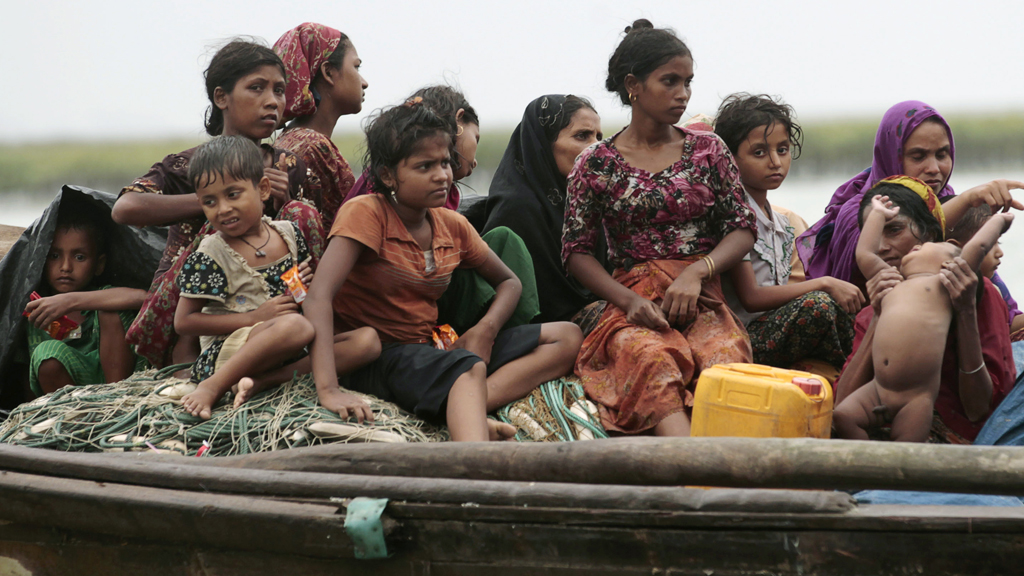Burma’s Rohingya face ‘new wave of violence’
John Sparks reports on “disturbing allegations” from Burma suggesting that a major new wave of violence, killings and house burnings in the country’s northwest Rakhine State is taking place.

 Senior members of the Muslim Rohingya community say that more than 100 Rohingya were killed on Tuesday and 440 houses burnt by ethnic Rakhine Buddhists in a village called Yaing Thay, in the northern part of the state. Local Rohingya have accused the police of participating in the violence and shooting members of their community.
Senior members of the Muslim Rohingya community say that more than 100 Rohingya were killed on Tuesday and 440 houses burnt by ethnic Rakhine Buddhists in a village called Yaing Thay, in the northern part of the state. Local Rohingya have accused the police of participating in the violence and shooting members of their community.
The allegations continue – community leaders claim 350 homes, two mosques and a madrassa were burnt in the village of Thayet Oat on 22 October and they say 200 Rohingya houses were burnt in a place called Aung Dine later that same day.
These villages are situated in an area known as Minbya Township and if these reports are true, it suggests that a concerted campaign has begun to drive Rohingya out of this district. Remember though, that these people don’t have anywhere to go – Rohingya are denied citizenship in Burma and no other country has expressed a willingness to take a group that numbers close to a million people.
Verifying these claims will prove extremely difficult. Security in northern parts of Rakhine State – which abuts the border with Bangladesh – is extremely tight. NGO officials including those from the UN are granted limited access on safety grounds while independent observers are effectively banned. Yet if these allegations are true, it would constitute the worst outbreak of violence since June when fighting left some 75,000 Rohingya and 5,000 Buddhists homeless.
International concern
International actors are already worried about the failure of Burma’s political leaders to support the Rohingya. The President, Thein Sein and the much celebrated opposition leader Aung San Suu Kyi have said little about the crisis in the Northwest and this perceived ambivalence has consequences – arguably, it is contributing to a climate where ethnic Buddhists in Rakhine State feel their Muslim neighbours are legitimate targets.
You can understand the politicians’ approach in terms of political expediency – most people in Burma argue the Rohingya are unwelcome and a series of demonstrations in major cities over the last few months has driven the point home.
President Sein has responded to – or capitalised on the popular mood recently by reneging on an agreement to let the Organisation of Islamic Co-operation open an office in the nation’s capital Yangon. The OIC, with 57 member nations, wants to help the Rohingya by distributing food aid and medical supplies. President Sein said opening an office would not be “in accordance with the people’s desires”.
The people’s desires must be challenged however – if Burmese leaders do not make a stand, the inspirational story of Burma’s transition from tyranny to democracy may be lost.




